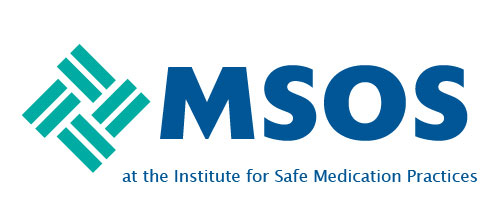Feed aggregator
Update on Alert: Infusion Pump Software Issue from Fresenius Kabi USA
Update on Alert: Solution Set Issue from Baxter Healthcare Corporation
Early Alert: Infusion Pump Issue from Baxter Healthcare Corporation
One Source Nutrition, Inc. Issues Voluntary Nationwide Recall of Vitality Capsules Due to Presence of Undeclared Sildenafil and Tadalafil
Vaporizer Recall: Getinge Removes Vaporizer Sevoflurane Quick-Fil and Expands Recall of Vaporizer Sevoflurane Maquet Filling due to Risk of Patient and Health Care Professional Exposure to Toxic Chemical Hydrogen Fluoride
Endovascular System Recall: Philips Removes and Discontinues Distribution of Tack Endovascular System Due to User Challenges That Caused Additional Procedures to Reposition or Remove Implant
Power Assist Device Recall: Max Mobility/Permobil Removes SpeedControl Dial Component Used with SmartDrive MX2+ Power Assist Device Due to Risk for Motor to Be Unresponsive to the User
Ablation Catheter Correction: Biosense Webster Updates Use Instructions for Varipulse due to High Rate of Stroke or Transient Ischemic Attack
Patient Table Correction: Philips Updates Use Instructions for Allura and Azurion Systems due to Patient Fall Risk from Incorrectly Positioned Mattresses
Regard Newborn Kit Recall: ROi CPS, LLC Removes Certain Newborn Kits Due to a Recalled Component, the Neo-Tee T-Piece Resuscitator With An Undersized Controller Spring
Endoscope Instrument Recall: Olympus Removes Single Use Guide Sheath Kits Due to Risk for Radiopaque Guide Sheath Tip Detaching During Procedures
Natural Dior LLC Issues Voluntary Nationwide Recall of Vitafer-L Gold Liquid Due to Presence of Undeclared Tadalafil
Central Admixture Pharmacy Services (CAPS) Issues Nationwide Recall of Phenylephrine 40 mg Added to 0.9% Sodium Chloride 250 mL in 250 mL Excel Bags Due to Visible Black Particulate Matter in a Single-Sealed Vial
Ascent Consumer Products Inc. Issues Voluntary Nationwide Recall of SinuCleanse Soft Tip Squeeze Bottle Nasal Wash System Due to Microbial Contamination
Pacemaker Recall: Boston Scientific Corporation Recalls Accolade Pacemaker Devices Due to a Manufacturing Issue That May Lead to Early Device Replacement
One Source Nutrition, Inc. Issues Voluntary Nationwide Recall of Vitality Capsules Due to Presence of Undeclared Sildenafil and Tadalafil
Art of leading quality improvement
In their article in this issue of BMJ Quality and Safety, ‘We listened and depended on and supported each other’, Ginsburg et al examine how leaders shaped the site-level experience in a quality improvement collaborative aimed at improving safety in long-term elder care.1 They performed a secondary thematic analysis of an existing mixed-methods data set generated from over 150 leaders and staff at 31 sites, where the qualitative data describing leadership processes included written materials, observations, survey responses and focus groups. The research team had previously reported that participants’ perceptions of leader support correlated with success to an even greater extent than their perceptions of the intervention itself.2 In the additional analysis presented in this issue, the actions of effective leaders are described in three thematic areas: developing commitment, creating learning capacity and nurturing relationships.
The authors assert that relatively little is known about the...
The beast and the burden: will pruning performance measurement improve quality?
Programmes dedicated to driving improvement in healthcare quality have grown dramatically in the last two decades. Accreditation programmes along with performance measurement and reporting have been central to these efforts. In the USA, public reporting with financial rewards and penalties has been tied to results driving a proliferation of hundreds of quality measures across dozens of programmes at every level of healthcare. Measures are now routinely included in contracts that government and commercial payers establish with delivery organisations. Many of these measures, designed to evaluate the quality of care for large populations, have been applied to measure the quality of ambulatory practice groups and even individual clinicians with little attention to the statistical validity or utility of the results.
A backlash against performance measurement has gained momentum in recent years. Clinicians and policymakers are increasingly questioning the value of such programmes. Sceptics highlight three concerns. First is the financial...
Global perspectives on opioid use: shifting the conversation from deprescribing to quality use of medicines
Pain is a leading cause of disease burden and ill health globally, affecting approximately one in five people.1 Opioid analgesics are deemed essential medicines owing to their ability to relieve pain and dyspnoea.2 However, they are also recognised as high-risk medicines due to their propensity for harm, including adverse effects, dependence, non-medical use and overdose.3 Globally, significant variations in opioid access and usage have been observed. In 2018–2020, many countries in Asia and Africa consumed fewer than 200 standard defined daily doses of opioids per million inhabitants per day.4 Yet, in the same period, the USA consumed an average of over 20 000 standard defined daily doses per million inhabitants per day.4 While medical needs will inevitably vary between countries according to their epidemiological profiles, the magnitude of disparity in consumption indicates potential unmet need in some countries and overuse...
